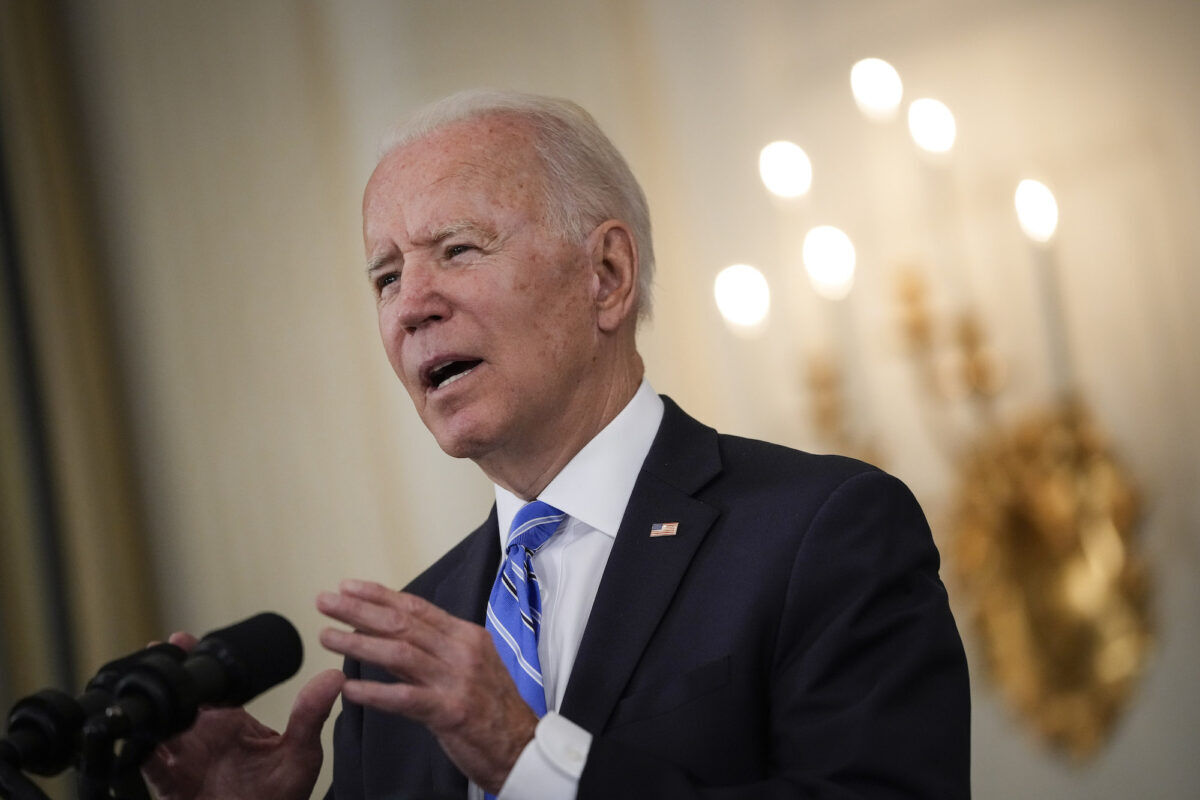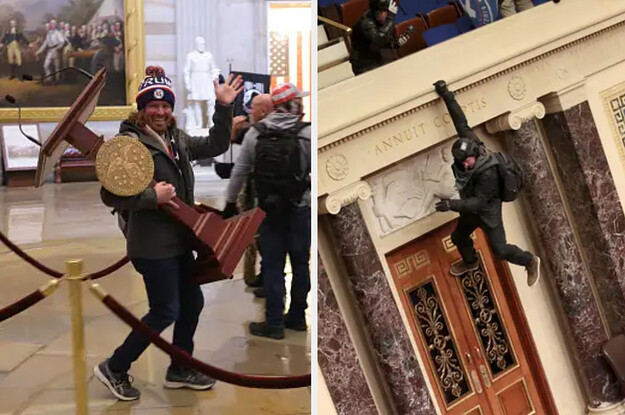President Joe Biden on Wednesday acknowledged near-term inflation while insisting it would not be problem in the long run, arguing also that trillions of dollars more in proposed infrastructure and social safety net spending would drive down inflation, sparking conservative backlash.
Speaking at a televised town hall in Cincinnati on Wednesday, Biden said that, “there will be near-term inflation” as the economy continues to bounce back from its pandemic lows but insisted price pressures would taper going forward.
“The vast majority of the experts, including Wall Street, are suggesting that it’s highly unlikely that it’s going to be long-term inflation that’s going to get out of hand,” he added.
Biden traveled to Ohio to drum up support for his economic agenda and, during the town hall, fielded questions on many of the pressing issues of the day, including recent price hikes.
Data released last week showed hotter-than-expected June inflation, with the consumer price index (CPI) rising by 0.9 percent last month, hitting at a 13-year high. In the 12 months through June, inflation was up by 5.4 percent. Core inflation, which excludes the volatile food and energy components, also rose by 0.88 percent, more than double the consensus estimate. Year-over-year core CPI came in at 4.5 percent, standing at a 29-year high.
Growing concerns about inflation dragged U.S. consumer sentiment in early July to its lowest level in five months, a survey showed on Friday following the release of the CPI numbers.
Asked by the town hall moderator whether Biden’s confidence in the temporary nature of the current bout of inflation is reasonable, given that “you’re pumping all of this money into the economy,” Biden insisted that passage of additional spending plans—the bipartisan infrastructure package and his $3.5 trillion proposal to broaden the social safety net—would actually lower inflation.
“If we pass the other two things I’m trying to get done, we will, in fact, reduce inflation … because we’re going to be providing good opportunities and jobs for people who, in fact, are going to be reinvesting that money back in all the things we’re talking about, driving down prices, not raising prices,” Biden said, and, to support his position, referred to a recent Moody’s Analytics report that sought to cool concerns the economy is dangerously overheating.
“Worries that the plan will ignite undesirably high inflation and an overheating economy are overdone,” Mark Zandi, the chief economist at Moody’s Analytics, wrote in the report, which was released on Wednesday.
“This concern cannot be dismissed, but it is likely misplaced,” Zandi wrote.
Yet some Wall Street leaders, including BlackRock CEO Larry Fink and JPMorgan Chase boss Jamie Dimon, recently expressed views on inflation that diverge from predictions that price increases are transitory and will fade once supply shocks and other pressures ease.
“It is my view that inflation is going to be more systematical,” Fink told CNBC on July 14. “I believe it is a fundamental, foundational change in how we navigate economic policy.”
JPMorgan Chase executives are bullish on the U.S. economy, but they believe the strong rebound will continue to fuel inflation.
“I don’t think it’s all temporary,” Dimon said on July 13 during an earnings call with analysts. “But that doesn’t matter if we have very strong growth.”
Biden’s remarks about more spending leading to lower inflation drew conservative criticism on social media.
RNC Research, the Republican National Committee’s (RNC) policy research arm, wrote in a tweet that, “Biden’s ‘plan’ is to inflate his way out of inflation with MORE inflationary spending. His polices are a hidden tax on ALL Americans!”
Republican Jon Husted, Ohio’s Lieutenant Governor, wrote in a tweet: “President Biden says his trillion$ in new spending won’t create inflation, it has and it will.”
Meanwhile, Federal Reserve Chair Jerome Powell on July 15 expressed concern about inflation, saying that he and his colleagues are thinking about rising prices “night and day.”
Still, Powell told a Senate Banking Committee hearing that the Fed’s easy monetary policy will continue as the jobs market recovery “is still a ways off.”
The Fed has made it clear that it has no immediate plans to raise interest rates from near-zero levels and downsize its pandemic asset-purchase program. The central bank continues to buy at least $120 billion per month of Treasuries and mortgage-backed securities, to support the economy and the flow of credit, stoking asset bubble fears.
Emel Akan contributed to this report.
Follow Tom on Twitter:
Originally found on Epoch Times Read More







